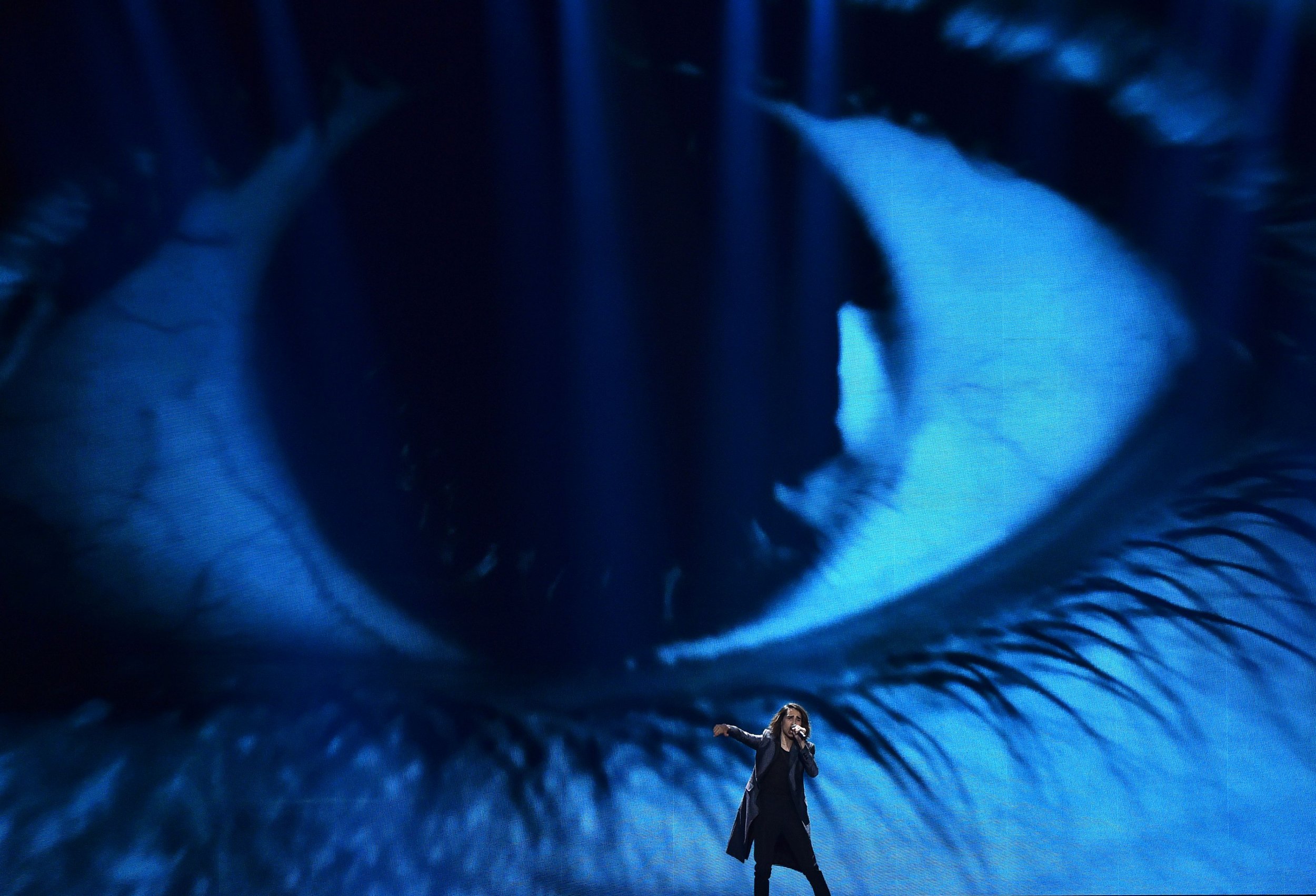
No need to invest in a crystal ball, your brain can already see into the future, well...sort of. Our eyes move faster than our brain is able to comprehend so in order to make up for this lapse and ensure our vision is stable and not jumpy, our brain "predicts" what our eyes will see next. Now, for the first time, scientists in Scotland have figured out exactly how we're able to accomplish this feat.
In the study, now published online in Scientific Reports, scientists at the University of Glasgow in the UK used functional magnetic resonance imaging (fMRI) and optical illusions to better understand what's going on in our brain when we see. Whereas the eyes usually send information to the brain about what the surroundings look like, known as feedforward input, this study focused particularly on brain feedback input, the neurological process where the brain sends information to the eyes.
Related: A robot mocked Elon Musk and his grim A.I. predictions. He didn't take it well
Study co-author Gracie Edwards, who specializes in neuroscience and psychology at the University of Glasgow, explained that the brain creates predictions based on memories of similar actions. "Feedforward and feedback information interact with one another to produce the visual scene we perceive every day," said Edwards.
For their research, the team used an fMRI to look at 27 volunteers with normal or corrected-to-normal vision. The fMRI focused on the volunteers' visual cortex, the area of the brain involved in processing vision, while the volunteers looked at an optical illusion.
To recreate an optical illusion, the researchers had volunteers look at two stationary flashing squares. To the observer, it appeared as though one square was moving between two locations where, in reality, it was just two separately flashing squares. The volunteers were asked to move their eyes during the flashing and fMRIs took scans of the visual cortexes of their brains as this happened.
Related: Brain science: This is why our heads don't actually explode when we're learning
Results showed the researchers exactly what happens during brain feedback. They revealed that during these flashes, the visual cortex feedback updated to a new predicted coordinate. The fMRI scans also showed that the brain rapidly adjusts predictions each time the eyes move.
According to lead researcher Lars Muckli who focuses on visual and cognitive neurosciences at the University of Glasglow in an email to Newsweek , these findings add to our overall understanding of neuroscience and the brain's ability to predict future acts.
Scientists already knew that the brain predicts what the eyes will see next. Our eyes move faster than our brain is able to comprehend, which would normally cause a delayed or dragged effect when we see moving objects, but the brain makes up for this by predicting the next position in order to keep our vision smooth, Live Science reported. Although this mechanism was previously noted, this is the first time researchers were able to physically see this mechanism in action.
While the discovery is exciting on its own, the possible implications from better understanding how the brain processes vision are far-reaching. For example, lead study researcher Lars Muckli, who also specializes in neuroscience & psychology at the University of Glasgow, explained that this finding could help us create better forms of brain-inspired artificial intelligence.
According to Muckli, AI already uses a type of feedforward mechanism, taking information and processing it in the main computer, but lacks a feedforward predictive mechanism.
"AI research is currently developing new algorithms that incorporate feedback mechanisms learned about in neuroscience research," explained Muckli. "These developments might provide breakthroughs towards AI becoming even more flexible."
Just because we can do something, doesn't always mean we should. The robot Sophia has recently taken the Internet by storm, with her witty comebacks and high aspirations, but some, including billionaire Elon Musk, worry that giving these computers too much intelligence may be the beginning of the end for humanity.
Uncommon Knowledge
Newsweek is committed to challenging conventional wisdom and finding connections in the search for common ground.
Newsweek is committed to challenging conventional wisdom and finding connections in the search for common ground.
About the writer
To read how Newsweek uses AI as a newsroom tool, Click here.








